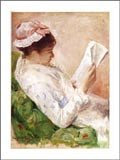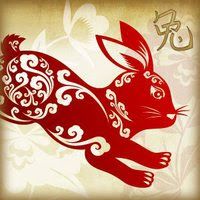8.28.08 I wrote this review after I read the book for the first time. I should write another review, since my second reading (for a book discussion ) changed my mind completely.
The Thirteenth Tale by Diane Setterfield is being flogged at Borders and Barnes & Noble as a must-read novel. I'm about to plunge into Gulliver's Travels for Knit the Classics (no longer in existence, R.I.P.), but I wanted a palate-cleanser, so to speak, so I brought the book home from the library and settled in with a cup of tea.
The strange thing, since the book is based on twinnage, is that my reading experience was Janus-like. My middle name is Jan. Maybe Jan is the mediator between the happy-to-have-read-this Janusface and the oh-come-on! Janusface?
The book utterly, totally engrossed me as I was reading. The book also utterly, totally annoyed me. Can this woman write, or not? Is she leaving clues that make McGuffins look like Tinkertoys, or not? Am I reading on because I like the way the publisher made the flyleaves look like those in old-fashioned books, or not?
Margaret Lea is a young woman whose life balances between two obsessions: her father's antiquarian bookstore, and lonely grief for her twin sister, who died in infancy, and whose existence she discovered by accident. Victoria Winter is an old woman, a writer of popular books (Gothic mysteries?), who summons Margaret to be her biographer. Winter has spent most of her adult life creating the stories for her books, and creating false biographies for herself, but she wants to tell the truth before she dies of a mysterious, painful, wasting disease.
Victoria Winter is depicted as a wasted, painted crone with hair dyed to the copper color of her youth, wearing massive jewelry, and telling an enthralled Margaret a spellbinding narrative. (I thought of Isak Dinesen.) Jane Eyre figures in the plot. Rebecca comes to mind. Of course, Dark Shadows, whose young Victoria Winters began that Gothic series. Victoria and her twin sister, presumably dead from the massive fire that destroyed their childhood home, were wild, cunning, even evil children who may or may not have caused mysterious deaths and mayhem around them. Links amongst other characters abound - or do they? A gardener, a missing nanny, a woman who may or may not be a Mrs. Danvers-type, a fey man who haunts the burnt-out shell of the house in-between catering local galas, and ghosts, many ghosts - the plot is absolutely stuffed with recognizable characters and plots.
A key, I think, is whether they are cliches or inventions. Can one twin take the place of another? Can she control the other, even from beyond the grave? Can one book have this many twists and still remain respectable? I confess: I don't read Gothic romances, so I might be defaming an entire genre with my doubts...
I confess: I enjoyed a few details. The cat, Shadow, for example, who attaches himself to Margaret and even shows her the way to a few important clues. (I've always wanted a familiar.) A woman who knits socks, and who knits them with two heels when things are about to go wrong in her life. Margaret's cocoa Jones, and fetish for perfectly-sharpened pencils.
The ending did surprise me, as did at least one or two of the plot twists. Margaret, with her largely-unfulfilled desire for provable details and her obsessive longing for her dead sister, may not be the ideal narrator, but I trusted her to be honest about what she observed and what she doubted. I read the book in a few hours, and I never was tempted to put it down in favor of another book. I just can't really recommend it. Or, at least, Jan can't...
8.28.2008
Subscribe to:
Post Comments (Atom)


No comments:
Post a Comment